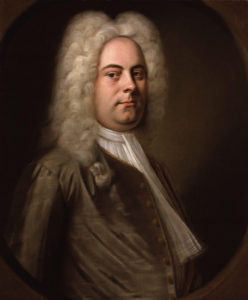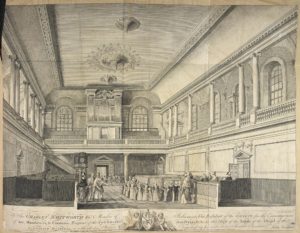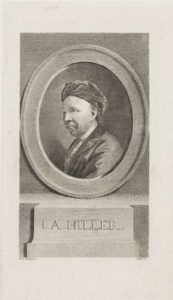
Messiah (never, please, “The” Messiah) received its premiere performance 278 years ago yesterday, at The Great Music Hall in Fishamble Street, Dublin, Ireland. As noted in yesterday’s Music History Monday post, the performing forces at the premiere were quite modest. Handel composed the work to be premiered in Dublin. Not being intimately familiar with the abilities of the local musicians, he kept the orchestration simple: strings (an unknown number of which played at the premiere), two trumpets, kettle drums (timpani), an organ and a harpsichord (played alternately by Handel himself). The members of the chorus were drawn from the choirs of two local cathedrals: Christ Church and St. Patrick’s (where Jonathan Swift was, at the time, the Dean). Handel’s chorus consisted of 16 men, 16 boys, and two women soloists, the celebrated English contralto Susannah Cibber and Christina Maria Avoglio, an Italian soprano drawn from Handel’s opera company.

Messiah received its London premiere on March 23, 1743, at the Covent Garden theater, and thus the tweaking began. To his original female soloists Susannah Cibber and Christina Maria Avoglio, Handel added a tenor soloist named John Beard, a bass soloist named Thomas Rheinhold, and two more soprano soloists, Kitty Clive and one “Miss Edwards.”
(Regarding that first London performance on March 23, 1743. According to legend, it was King George II himself who stood up during the “Hallelujah” chorus, obliging everyone else to stand as well and thus giving birth to the custom of standing during the chorus. Look, if you’ll buy that I have three cases of N95 face masks I’ll let go cheap. In fact, there is no evidence that George II ever attended a performance of Messiah yet stood up at the London premiere. Never happened; let’s just consider the whole “stand up thing” a musical seventh-inning stretch.)

A performance in the chapel of the London Foundling Hospital in 1754 is the first performance of Messiah for which we have a complete roster of the performing forces employed. The orchestra included not just trumpets, drums, harpsichord/organ, and strings (fifteen violins, five violas, three cellos, and two double-basses) but now four bassoons, four oboes, and two horns as well.
The re-orchestrating of Messiah and subsequent increase in its performance forces did not – unfortunately – end with Handel’s death in April 1759. In 1784, a performance of Messiah given at Westminster Abbey and conducted by Joah Bates featured 525 vocal and instrumental performers! In an article written in 1955, the English conductor and composer Sir Malcolm Sargent (1895-19667) provided some details about this performance:
“The orchestra employed was two hundred and fifty strong, including twelve horns, twelve trumpets, six trombones and three pairs of timpani (some made especially large).”
Another performance of Messiah given at Westminster Abbey in 1787 advertised that:
“The Band will consist of Eight Hundred Performers.”(!)

In 1788, the German composer and conductor Johann Adam Hiller (1728-1805) performed his “revised” version of Messiah at the Berlin Cathedral with a choir of 259 voices and an orchestra consisting of 87 strings, 10 bassoons, 11 oboes, 8 flutes, 8 horns, 4 clarinets, 4 trombones, 7 trumpets, timpani, harpsichord and organ (and a partridge in a pear tree).
In 1789, Mozart was hired by his patron Baron Gottfried von Swieten to re-orchestrate Messiah. (The nineteenth-century German music theorist and composer Moritz Hauptmann -1792–1868 – rejected Mozart’s emendations as being “stucco ornaments on a marble temple.”)

By the mid-nineteenth century, the grandiosity of performances of Messiah had reached truly comic proportions. For example, at a performance in 1857 at the Crystal Palace in southeast London employed a chorus with some 2000 singers and an orchestra of 500. Difficult though it is to believe, even larger performances of Messiah took place in the 1860s and 1870s, at which point the absurdity of it all began to be apparent.… continue reading, and see Dr. Bob’s Prescribed recordings, only on Patreon!
